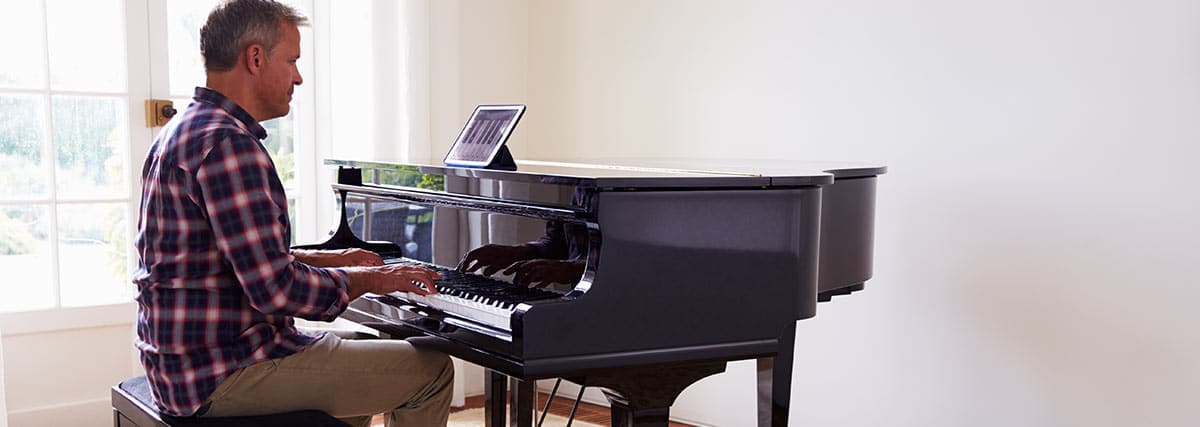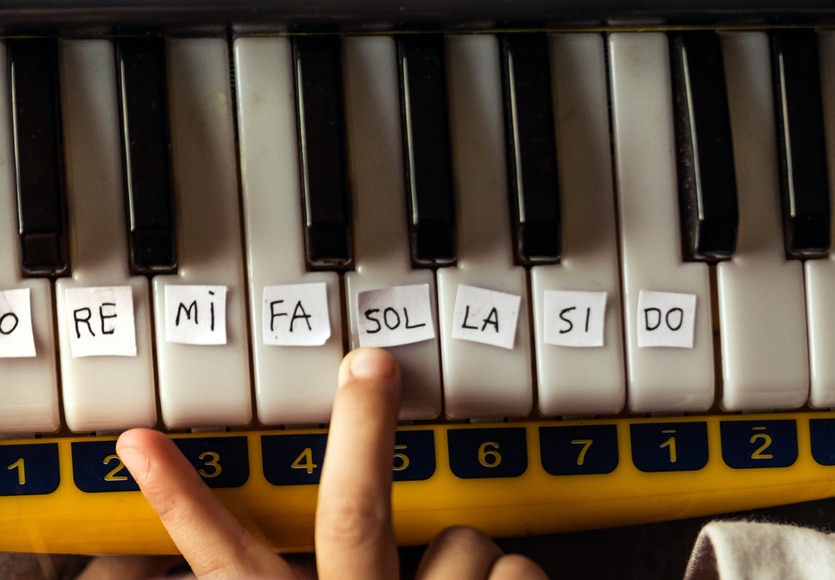Music theory and piano lessons are closely intertwined, offering students a comprehensive understanding of both the technical and theoretical aspects of music.
In New York City, a cultural hub for the arts, many piano education programs have recognized the importance of integrating music theory into their curriculum. This approach not only enhances a student’s ability to play the piano but also deepens their overall musical knowledge, making them more well-rounded musicians.
The Role of Music Theory in Piano Education
Music theory serves as the foundation for understanding how music works, from reading sheet music to comprehending the structure of compositions. In piano education, theory is essential for developing a musician’s ability to interpret and perform pieces accurately.
By learning music theory alongside piano techniques, students gain insights into chord progressions, scales, and harmonization, which are critical for both classical and contemporary music. This dual focus helps students not only play notes but understand the music they are performing, leading to more expressive and informed performances.
Overview of Piano Education in NYC: Traditional vs. Online Apps

Piano education in New York City is as dynamic and diverse as the city itself, offering a rich array of options for aspiring pianists at every level. Whether you’re a beginner or an advanced player, new platforms with vast amounts of piano lessons NYC provide opportunities to learn with a variety of styles and methods. The traditional lessons have come to mix with new technology, new apps and platforms.
For example, the Juilliard School, renowned globally, offers rigorous training in both performance and music theory, producing some of the most accomplished musicians. However, you don’t have to aim for Juilliard to find quality instruction. Schools like the New York Piano Academy focus on integrating classical technique with contemporary music, providing a well-rounded approach that appeals to a broad range of students.
On platforms like Reddit and Quora, you’ll find numerous personal experiences from students who have navigated NYC’s piano education scene. One Reddit user shared their positive experience with The New School’s piano program, highlighting how the integration of jazz theory into their lessons transformed their understanding of music.
Another Quora contributor praised The Brooklyn Music School for its supportive environment and personalized instruction, which helped them transition from a complete beginner to confidently playing in recitals.
What makes NYC’s piano education unique is its accessibility and diversity. Whether you’re interested in classical music, jazz, or even electronic music production, there’s a program that caters to your interests.
Additionally, the city’s vibrant music scene offers countless opportunities for live performance, from small recitals in intimate settings to larger stages in venues like Carnegie Hall. This blend of high-quality instruction and real-world application makes learning piano in New York City not just an educational pursuit, but a deeply enriching cultural experience.
New tendencies in Piano Learning
While the city is home to world-renowned music schools, many students are now exploring digital platforms that provide high-quality piano education without the need for a traditional classroom setting.
For example, several online platforms offer comprehensive piano lessons that combine video tutorials with interactive theory lessons, allowing students to learn at their own pace. These platforms often include features like progress tracking, where students can see how they’re improving over time, and personalized feedback based on their playing.
One user on Reddit mentioned how they successfully used an online platform to transition from a beginner to an intermediate level, praising the flexibility it offered, especially given the busy lifestyle in a city like New York.
Another great option for those looking to blend theory with practice are apps that offer real-time feedback on your playing. These apps typically include a library of songs across various genres, along with guided practice sessions that focus on both technical skills and music theory.
Quora users often share their positive experiences with these tools, noting how they’ve been able to master complex concepts like chord progressions and scales while still enjoying the learning process.
The beauty of these online platforms and apps is that they allow students to tailor their learning experience to their specific needs and schedules, making high-quality piano education more accessible than ever, even in a bustling city like NYC. Whether you’re learning late at night after work or squeezing in practice sessions between classes, these digital tools can offer the kind of flexibility that traditional lessons might not.
Methods of Integrating Music Theory in Piano Lessons (Online App Context)

Online piano apps effectively integrate music theory into lessons through several key methods:
- Interactive Theory Modules: Many apps offer dedicated theory lessons that accompany practical exercises, allowing students to learn concepts like scales and chord progressions alongside their piano practice.
- Theory-Linked Repertoire: Apps often feature songs that are specifically chosen to highlight certain theoretical concepts, helping students understand the music’s structure while they learn to play.
- Real-Time Feedback: As students play, apps provide instant feedback on their performance, including notes on rhythm, harmony, and chord accuracy, reinforcing the connection between theory and practice.
- Gamified Learning: Quizzes and challenges related to music theory keep students engaged and help solidify their understanding in a fun, interactive way.
These methods ensure that music theory is seamlessly woven into the learning experience, making it both accessible and engaging for students.
Conclusion
In New York City, the integration of music theory into piano lessons is a cornerstone of many educational programs, helping to create well-rounded musicians. By combining practical piano skills with a strong theoretical foundation, students not only learn how to play the instrument but also gain a deep understanding of the music they perform.
This dual approach ensures that students are better equipped to express themselves musically and adapt to various styles and challenges in their musical journey. Whether through traditional schools or modern online platforms, NYC continues to lead the way in providing comprehensive and enriching piano education.











